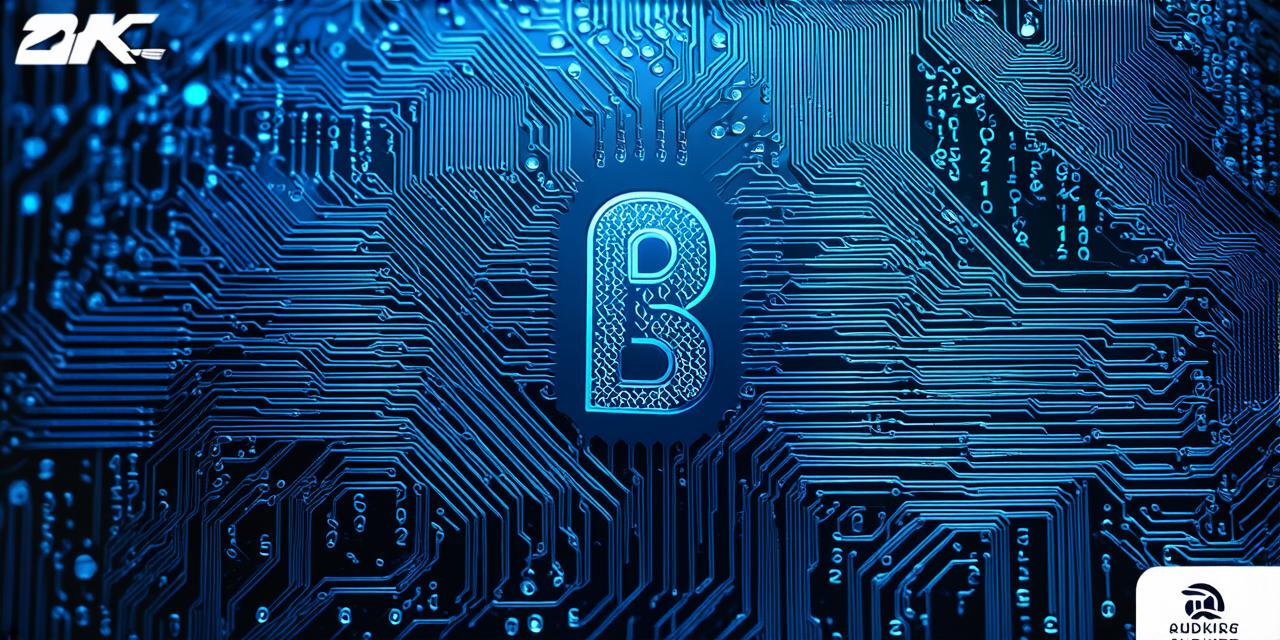Introduction
Blockchain technology is revolutionizing the way transactions are carried out between businesses. With its decentralized and secure nature, blockchain eliminates many of the challenges that come with traditional methods of transaction.

Eliminating Intermediaries
One of the key advantages of blockchain technology is its ability to eliminate intermediaries from transactions. This means that businesses can deal directly with each other, without the need for a third party to facilitate the transaction.
For example, in the finance industry, blockchain technology has been used to create peer-to-peer payment systems, such as Bitcoin and Ethereum, which allow individuals to send and receive payments directly from one another without the need for a bank or payment processor.
Eliminating Counterparty Risk
Another advantage of blockchain technology is its ability to eliminate counterparty risk. This means that businesses can transact with each other in a secure and trustworthy manner, without worrying about the possibility of fraud or default.
For example, in the supply chain industry, blockchain technology has been used to create tamper-proof ledgers of goods, which allows businesses to track the movement of products from manufacturer to consumer. This helps to reduce the risk of counterparty fraud and ensures that all parties involved in the transaction are aware of the status of the goods at all times.
Eliminating Intermediaries in Smart Contracts
Smart contracts are self-executing programs that automate the enforcement of a contract between two or more parties. Blockchain technology has made it possible to create smart contracts that can be executed automatically when certain conditions are met. This means that businesses no longer need intermediaries, such as lawyers or notaries, to oversee their transactions.
For example, in the real estate industry, blockchain technology has been used to create smart contracts that automatically transfer ownership of a property when certain conditions, such as payment of a certain amount of money, are met.
Eliminating Friction and Costs
Blockchain technology also eliminates friction and costs in transactions. This means that businesses can transact more quickly and efficiently than they would using traditional methods.
For example, in the supply chain industry, blockchain technology has been used to create faster and more efficient payment systems, which reduces the time and cost associated with processing payments. This allows businesses to focus on other aspects of their operations, such as production or marketing.
Case Studies
Let’s take a look at some real-life examples of how blockchain technology has been used to eliminate certain roles in transactions:
-
In the finance industry, banks have started using blockchain technology to create faster and more efficient payment systems. For example, IBM has partnered with a group of banks to create a blockchain-based payment platform that allows businesses to send and receive payments quickly and securely.
-
In the supply chain industry, Walmart has started using blockchain technology to create a tamper-proof ledger of goods. This allows Walmart to track the movement of products from manufacturer to consumer, which helps to reduce the risk of counterparty fraud and ensures that all parties involved in the transaction are aware of the status of the goods at all times.
-
In the real estate industry, a startup called PropFinder has started using blockchain technology to create smart contracts that automatically transfer ownership of a property when certain conditions are met. This eliminates the need for intermediaries and speeds up the process of buying and selling properties.
FAQs
1. How does blockchain technology eliminate intermediaries in transactions?
Blockchain technology allows businesses to deal directly with each other, without the need for a third party to facilitate the transaction.
2. How does blockchain technology eliminate counterparty risk?
Blockchain technology allows businesses to transact with each other in a secure and trustworthy manner, without worrying about the possibility of fraud or default.
3. How do smart contracts eliminate intermediaries in transactions?
Smart contracts are self-executing programs that automate the enforcement of a contract between two or more parties. This means that businesses no longer need intermediaries, such as lawyers or notaries, to oversee their transactions.
4. How does blockchain technology eliminate friction and costs in transactions?
Blockchain technology eliminates friction and costs in transactions by allowing businesses to transact more quickly and efficiently than they would using traditional methods.
Summary
In conclusion, blockchain technology is revolutionizing the way transactions are carried out between businesses by eliminating many of the challenges that come with traditional methods. By eliminating intermediaries, counterparty risk, and friction and costs, blockchain technology allows businesses to deal directly with each other, in a secure and trustworthy manner, and transact more quickly and efficiently than they would using traditional methods.



